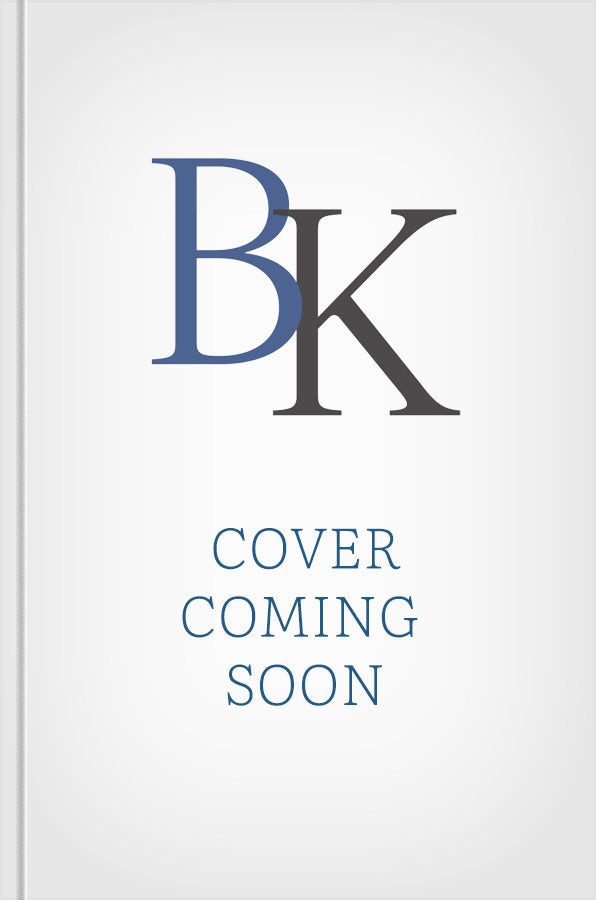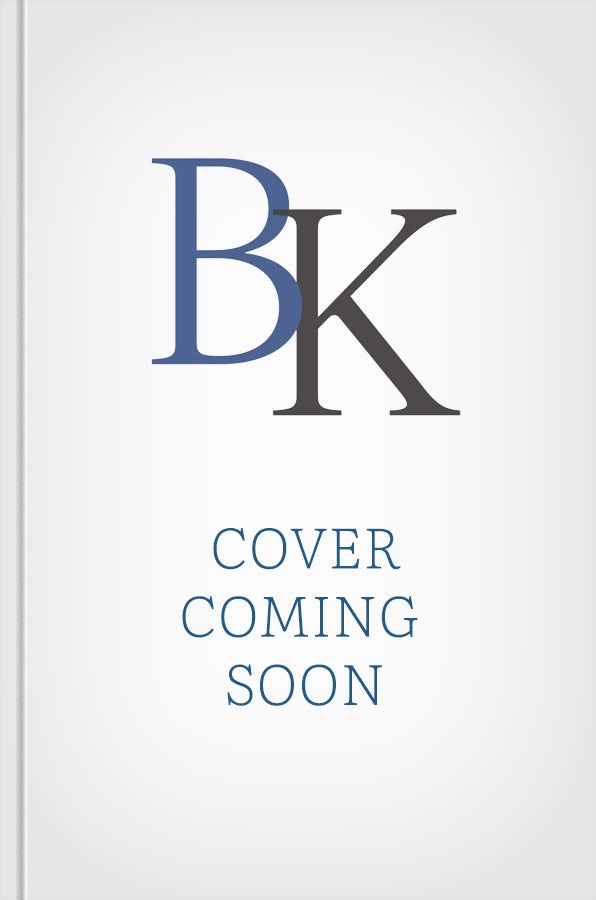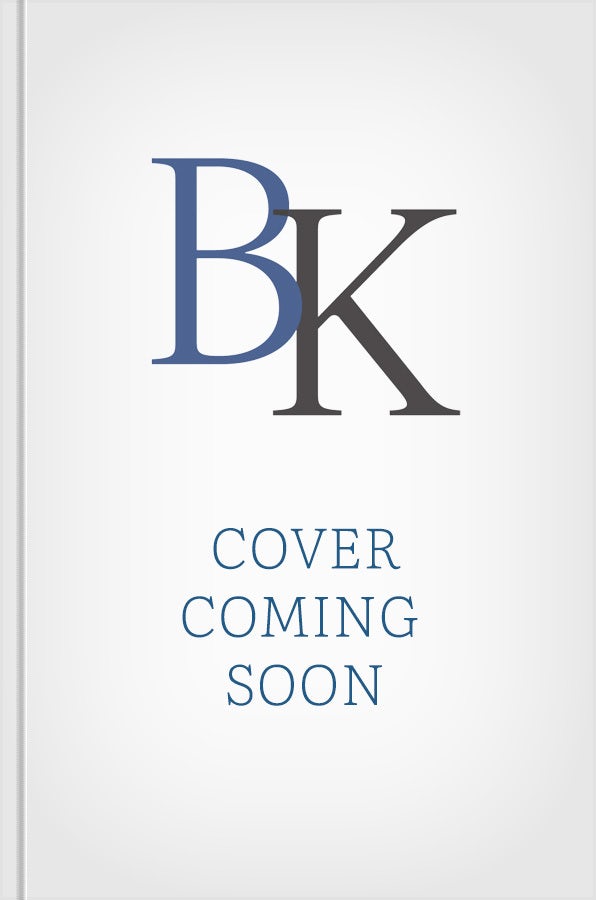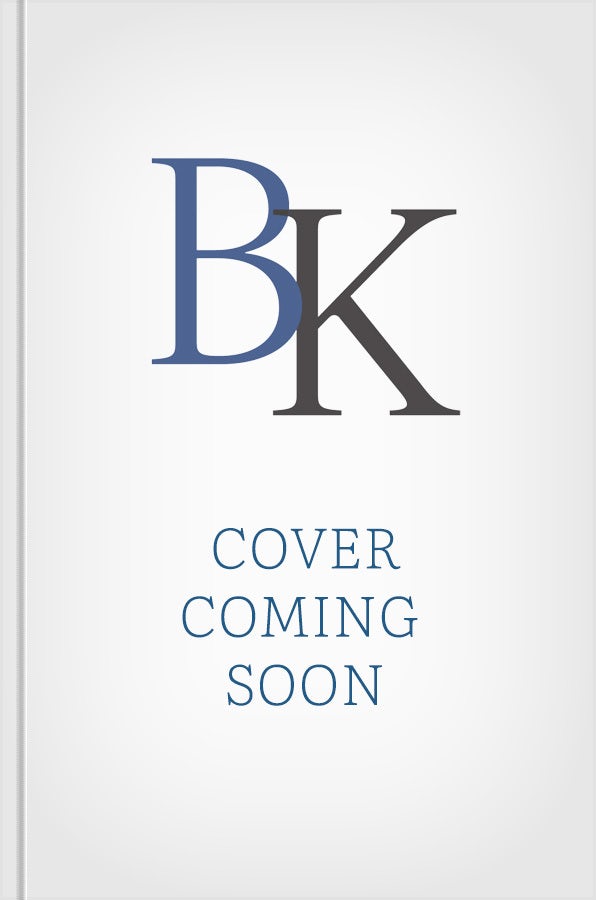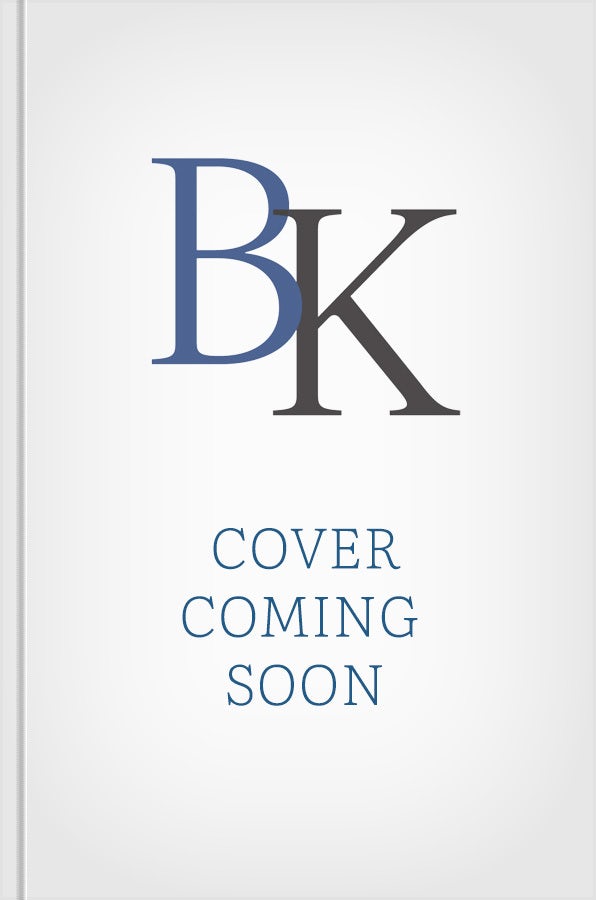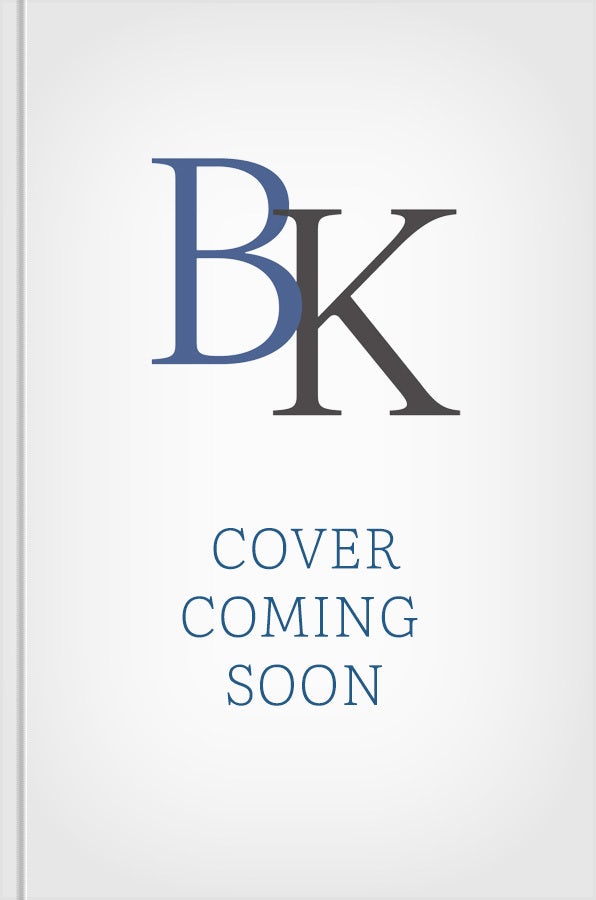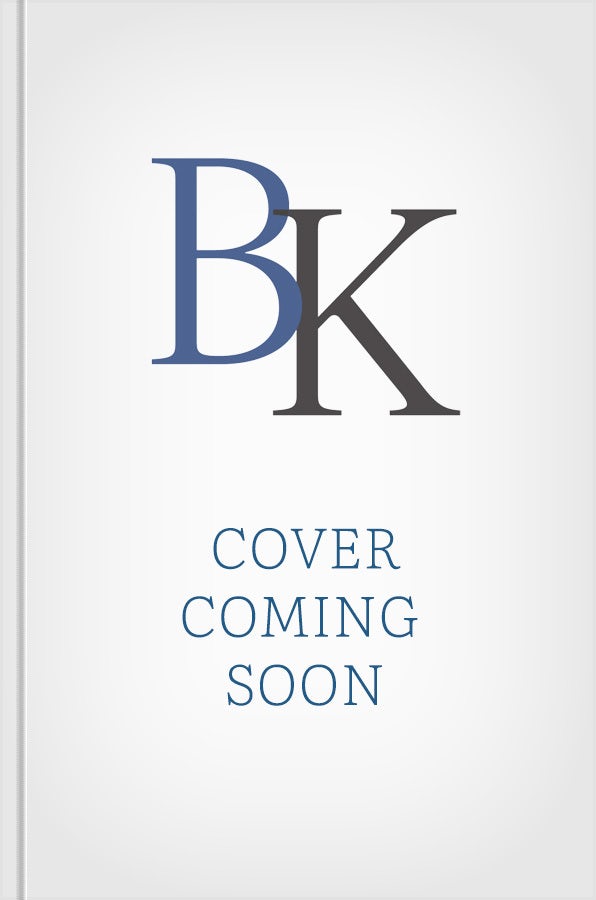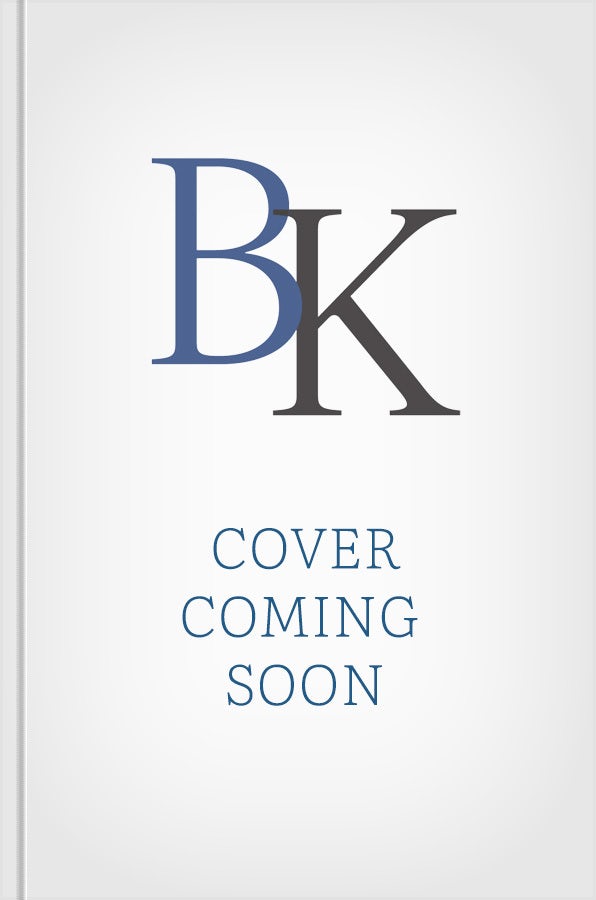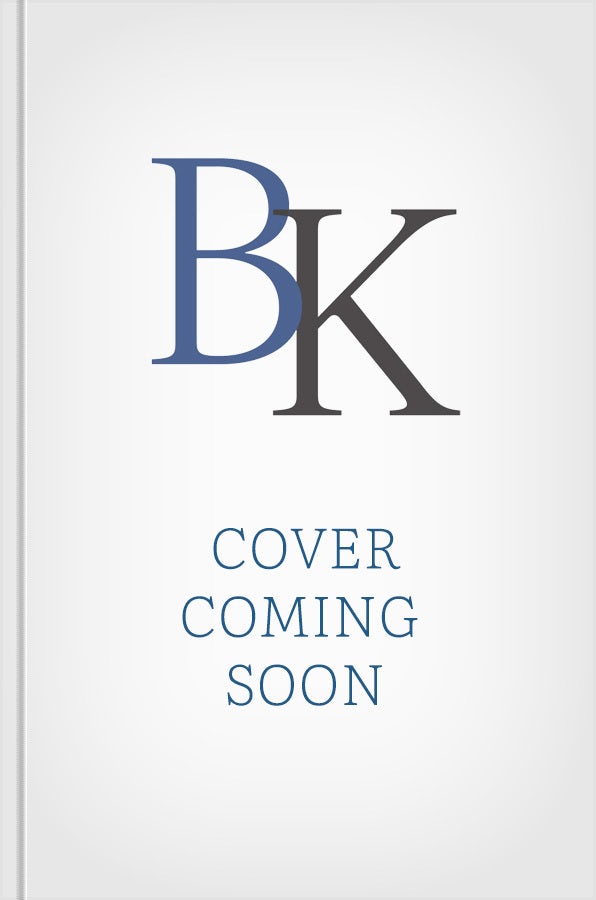Sort by:
The new edition of this internationally acclaimed guide to remote and hybrid leadership comes with an updated and enriched framework for the modern workplace. It introduces new principles and retains proven strategies for effective leadership across distances.
When The Long-Distance Leader was first published, it was pre-pandemic and remote work was in its infancy with 30% of managers leading at a distance-now that number is well over 50%.
As more organizations adopt a remote workforce, the challenges of leading at a distance become more urgent than ever. The cofounders of the Remote Leadership Institute, Kevin Eikenberry and Wayne Turmel, show leaders how to guide their teams by recalling the foundational principles of leadership whether their teams are remote, hybrid, co-working, or something entirely new!
The authors' "Three-O" Model refocuses leaders to think about outcomes, others, and ourselves-elements of leadership that remain unchanged, whether employees are down the hall or halfway around the world. By pairing it with the Remote Leadership Model, which emphasizes using technology as a tool and not a distraction, leaders can navigate the terrain of managing teams wherever they are.
This second edition features updated exercises that ensure projects stay on track, keep productivity and morale high, and build lasting relationships, along with a new chapter on hybrid workplaces.
When The Long-Distance Leader was first published, it was pre-pandemic and remote work was in its infancy with 30% of managers leading at a distance-now that number is well over 50%.
As more organizations adopt a remote workforce, the challenges of leading at a distance become more urgent than ever. The cofounders of the Remote Leadership Institute, Kevin Eikenberry and Wayne Turmel, show leaders how to guide their teams by recalling the foundational principles of leadership whether their teams are remote, hybrid, co-working, or something entirely new!
The authors' "Three-O" Model refocuses leaders to think about outcomes, others, and ourselves-elements of leadership that remain unchanged, whether employees are down the hall or halfway around the world. By pairing it with the Remote Leadership Model, which emphasizes using technology as a tool and not a distraction, leaders can navigate the terrain of managing teams wherever they are.
This second edition features updated exercises that ensure projects stay on track, keep productivity and morale high, and build lasting relationships, along with a new chapter on hybrid workplaces.


Susan Fowler
Why Motivating People Doesn't Work…and What Does, Second Edition
2495
$24.95
Unit price perSusan Fowler
Why Motivating People Doesn't Work…and What Does, Second Edition
2495
$24.95
Unit price per
"Leaders who want to amp up employee morale should take a look.”-Publishers Weekly
What if the answer to motivating people is to stop trying to motivate them?
The second edition of this bestseller reveals how motivation science is essential for solving the most vexing leadership issues-from hybrid work and retention to employee engagement.
Leaders face a motivation dilemma. Traditional command-and-control management styles and carrot-and-stick motivation techniques have been proven ineffective.
Motivation researcher and leadership consultant Susan Fowler expands on her groundbreaking Spectrum of Motivation model in this updated post-pandemic edition. New chapters tackle motivation science's role in managing remote and hybrid work; expose overused tactics, such as gamification and tokens; and tell the fascinating backstory behind the great resignation and quiet quitting.
Fowler's approach to leadership is fresh, pragmatic, and inspiring. But it's also empirically sound. Her framework builds on Self-Determination Theory, equipping leaders with skills to encourage choice, deepen connection, and build competence. Leaders who mastered this method have experienced breakthroughs with higher retention, lower turnover, greater acceptance of DEIJ initiatives, and a more vital, creative, and resilient workforce.
Through her experiences working with organizations and leaders around the world, Fowler reminds us that motivation is at the heart of everything people do and everything they don't do but wish they did. When managers integrate motivation science into their everyday leadership practice, an evolutionary truth emerges: people can be highly productive and flourish simultaneously.
What if the answer to motivating people is to stop trying to motivate them?
The second edition of this bestseller reveals how motivation science is essential for solving the most vexing leadership issues-from hybrid work and retention to employee engagement.
Leaders face a motivation dilemma. Traditional command-and-control management styles and carrot-and-stick motivation techniques have been proven ineffective.
Motivation researcher and leadership consultant Susan Fowler expands on her groundbreaking Spectrum of Motivation model in this updated post-pandemic edition. New chapters tackle motivation science's role in managing remote and hybrid work; expose overused tactics, such as gamification and tokens; and tell the fascinating backstory behind the great resignation and quiet quitting.
Fowler's approach to leadership is fresh, pragmatic, and inspiring. But it's also empirically sound. Her framework builds on Self-Determination Theory, equipping leaders with skills to encourage choice, deepen connection, and build competence. Leaders who mastered this method have experienced breakthroughs with higher retention, lower turnover, greater acceptance of DEIJ initiatives, and a more vital, creative, and resilient workforce.
Through her experiences working with organizations and leaders around the world, Fowler reminds us that motivation is at the heart of everything people do and everything they don't do but wish they did. When managers integrate motivation science into their everyday leadership practice, an evolutionary truth emerges: people can be highly productive and flourish simultaneously.
Your DEIJ efforts are stagnating because you continue to center whiteness. Creating a truly anti-racist organization requires learning how to identify and rectify the systemic, and often unconscious, centering of white culture and values in the workplace.
Corporate America continues to struggle with racial equity in a post-George Floyd world. As the United States becomes more diverse and the public consciousness continues to shift, successful racial equity efforts in the workplace are needed now more than ever.
Decentering Whiteness in the Workplace exposes the ways that white culture and expectations are centered in the modern American workplace and the fears within corporate spaces about talking candidly, openly, and honestly about whiteness, white supremacy, and anti-Blackness.
Readers will discover:
• A direct and straightforward analysis about what white-centering is
• An evaluation of the different ways that whiteness is centered in the workplace, such as bereavement and holiday policies and dress codes
• A guide on how to recognize and decenter whiteness within oneself and at work
• Solutions for people to contribute individually and systemically to anti-oppression
Decentering Whiteness in the Workplace provides a crucial guidebook with practical solutions for leaders, DEIJ practitioners, and anyone hoping to truly create an anti-racist workplace.
Corporate America continues to struggle with racial equity in a post-George Floyd world. As the United States becomes more diverse and the public consciousness continues to shift, successful racial equity efforts in the workplace are needed now more than ever.
Decentering Whiteness in the Workplace exposes the ways that white culture and expectations are centered in the modern American workplace and the fears within corporate spaces about talking candidly, openly, and honestly about whiteness, white supremacy, and anti-Blackness.
Readers will discover:
• A direct and straightforward analysis about what white-centering is
• An evaluation of the different ways that whiteness is centered in the workplace, such as bereavement and holiday policies and dress codes
• A guide on how to recognize and decenter whiteness within oneself and at work
• Solutions for people to contribute individually and systemically to anti-oppression
Decentering Whiteness in the Workplace provides a crucial guidebook with practical solutions for leaders, DEIJ practitioners, and anyone hoping to truly create an anti-racist workplace.
Improve communication, engagement, and culture with active listening.
When employees, colleagues, and customers are not being heard, organizational culture, employee happiness, and overall organizational success will suffer. How well do you listen?
Active listening is the doorway to increased belonging, loyalty, profitability, innovation, and so much more. It is the difference between thinking we understand what people want and knowing what they want. Want to build stronger relationships, avoid misunderstandings, and anticipate problems before they surface at work?
All you have to do is listen.
The Art of Active Listening introduces a 5-step framework that shows you how to listen successfully and act upon what you are hearing. Readers will discover how to:
1. Recognize the unsaid
2. Seek to understand
3. Decode
4. Act
5. Close the loop
Backed by her personal review of over 30,000 employee and customer surveys and facilitation of 100's of focus groups, Younger discovered one universal truth: We all want to be heard. We want our voices to matter. We want the work we do to matter.
When we get this right - when we listen to our employees and customers and care about them not just for what they can do but for who they ARE - they can and will move mountains.
Using the tools provided in this book, you can implement active listening, regardless of whether you're in-person or virtual, that benefits all team members and customers, strengthens overall engagement, improves organizational culture and creates a space for everyone to have a voice.
When those at work feel heard, they will do whatever it takes to achieve outcomes that serve your relationship and your organization.
When employees, colleagues, and customers are not being heard, organizational culture, employee happiness, and overall organizational success will suffer. How well do you listen?
Active listening is the doorway to increased belonging, loyalty, profitability, innovation, and so much more. It is the difference between thinking we understand what people want and knowing what they want. Want to build stronger relationships, avoid misunderstandings, and anticipate problems before they surface at work?
All you have to do is listen.
The Art of Active Listening introduces a 5-step framework that shows you how to listen successfully and act upon what you are hearing. Readers will discover how to:
1. Recognize the unsaid
2. Seek to understand
3. Decode
4. Act
5. Close the loop
Backed by her personal review of over 30,000 employee and customer surveys and facilitation of 100's of focus groups, Younger discovered one universal truth: We all want to be heard. We want our voices to matter. We want the work we do to matter.
When we get this right - when we listen to our employees and customers and care about them not just for what they can do but for who they ARE - they can and will move mountains.
Using the tools provided in this book, you can implement active listening, regardless of whether you're in-person or virtual, that benefits all team members and customers, strengthens overall engagement, improves organizational culture and creates a space for everyone to have a voice.
When those at work feel heard, they will do whatever it takes to achieve outcomes that serve your relationship and your organization.
Hone your skills and strengthen your practice with this series of twenty-five fresh and provocative questions for reflection that challenge the conventional wisdom in the coaching profession.
Like any established profession, coaching is full of unexamined assumptions. These need to be regularly questioned and tested to keep the profession vital and valuable. Coaches need to engage in the same kind of scrutiny and self-examination that offers such powerful benefits to their clients.
In Positive Provocation, coaching thought leader Robert Biswas-Diener asks a series of twenty-five provocative and sometimes playful questions that take a fresh look at some of coaching's most cherished beliefs. What if coaches had agendas? Why are ethics so boring? What's so great about interrupting? Can we trust eureka moments? What if we used less empathy?
This is not an attack on the coaching profession-Biswas-Diener writes with a light, conversational, and often humorous touch. These are positive provocations, meant to stimulate your curiosity, engage you with the latest research, and invite you to see your practice with new eyes.
Biswas-Diener covers philosophies of coaching, communicating with clients, common coaching concepts, coaching interventions, and a big final provocation: should coaching be informed by science? This book will give you a richer understanding of the coaching process, make you more articulate about your own beliefs, and allow you to feel more engaged with the craft.
Like any established profession, coaching is full of unexamined assumptions. These need to be regularly questioned and tested to keep the profession vital and valuable. Coaches need to engage in the same kind of scrutiny and self-examination that offers such powerful benefits to their clients.
In Positive Provocation, coaching thought leader Robert Biswas-Diener asks a series of twenty-five provocative and sometimes playful questions that take a fresh look at some of coaching's most cherished beliefs. What if coaches had agendas? Why are ethics so boring? What's so great about interrupting? Can we trust eureka moments? What if we used less empathy?
This is not an attack on the coaching profession-Biswas-Diener writes with a light, conversational, and often humorous touch. These are positive provocations, meant to stimulate your curiosity, engage you with the latest research, and invite you to see your practice with new eyes.
Biswas-Diener covers philosophies of coaching, communicating with clients, common coaching concepts, coaching interventions, and a big final provocation: should coaching be informed by science? This book will give you a richer understanding of the coaching process, make you more articulate about your own beliefs, and allow you to feel more engaged with the craft.
Discover eight powerful mindset shifts that enable leaders and seekers of all ages to thrive in a time of unprecedented change and uncertainty.
Being adaptable and flexible have always been hallmarks of effective leadership, but recent events have seriously stress tested this idea. How do you find calm in the midst of all this chaos?
You need a new mindset, one that treats constant change and uncertainty as a feature, not a bug. Flux helps you develop eight "flux superpowers" that take conventional ideas and turn them on their heads. They'll enable you to see change in new ways, develop new responses, and ultimately reshape your relationship to change. The eight flux superpowers are:
1. Run slower
2. See what's invisible
3. Get lost
4. Start with trust
5. Know your "enough"
6. Create your portfolio career
7. Be all the more human (and serve other humans)
8. Let go of the future
The world is in constant flux, but we can learn to navigate change gracefully and confidently. Whether you're sizing up your career or reassessing your values, designing a product or building an organization, trying to inspire your colleagues or simply show up more fully in the world, activating your flux superpowers will keep you grounded even when the ground is constantly shifting beneath you.
This book will include a discussion guide.
Being adaptable and flexible have always been hallmarks of effective leadership, but recent events have seriously stress tested this idea. How do you find calm in the midst of all this chaos?
You need a new mindset, one that treats constant change and uncertainty as a feature, not a bug. Flux helps you develop eight "flux superpowers" that take conventional ideas and turn them on their heads. They'll enable you to see change in new ways, develop new responses, and ultimately reshape your relationship to change. The eight flux superpowers are:
1. Run slower
2. See what's invisible
3. Get lost
4. Start with trust
5. Know your "enough"
6. Create your portfolio career
7. Be all the more human (and serve other humans)
8. Let go of the future
The world is in constant flux, but we can learn to navigate change gracefully and confidently. Whether you're sizing up your career or reassessing your values, designing a product or building an organization, trying to inspire your colleagues or simply show up more fully in the world, activating your flux superpowers will keep you grounded even when the ground is constantly shifting beneath you.
This book will include a discussion guide.
Burnout rising. Systems cracking. Talent leaving.
The solution: design for human dignity and full-person diversity—with this award-winning guide.
The Canary Code reorganizes work for thriving—starting with those first impacted by faulty systems, like canaries first sensing toxic air in coal mines. Neurodivergent talent (members of ADHD, autism, Tourette’s syndrome, and learning-differences communities, and others who think and experience life differently) offer unique skills and exceptional work ethics, yet face employment barriers. Their unique abilities and perspectives are excluded, and their canary warnings about bullying, broken workflows, or ethical drift are ignored.
This practical guide helps CEOs, managers, HR leaders, and changemakers improve work for all. Drawing on science and lived experience, 2025 Thinkers50 Talent Award winner and internationally renowned management expert Ludmila Praslova shows how embracing neurodiversity creates healthier, more innovative systems. A neurodivergent organizational psychologist with over twenty-five years of global practice and research on inclusive organizations, she offers the following:
The solution: design for human dignity and full-person diversity—with this award-winning guide.
The Canary Code reorganizes work for thriving—starting with those first impacted by faulty systems, like canaries first sensing toxic air in coal mines. Neurodivergent talent (members of ADHD, autism, Tourette’s syndrome, and learning-differences communities, and others who think and experience life differently) offer unique skills and exceptional work ethics, yet face employment barriers. Their unique abilities and perspectives are excluded, and their canary warnings about bullying, broken workflows, or ethical drift are ignored.
This practical guide helps CEOs, managers, HR leaders, and changemakers improve work for all. Drawing on science and lived experience, 2025 Thinkers50 Talent Award winner and internationally renowned management expert Ludmila Praslova shows how embracing neurodiversity creates healthier, more innovative systems. A neurodivergent organizational psychologist with over twenty-five years of global practice and research on inclusive organizations, she offers the following:
- A holistic framework of human differences (social, cognitive, emotional, physical)
- An intersectional, whole-person approach to neuroinclusion
- Dignity-based talent practices, from hiring to leadership development
- Global perspectives celebrating diverse neurodivergent voices
- Actionable strategies for change at any organizational level
"La'Wana Harris has opened this coach's eyes to the power of coaching practices to create new paths for diversity and inclusion work-whether or not you are formally trained as a coach. Please read this book and help create workplaces with honest engagement and access for all."
-Marshall Goldsmith, Thinkers 50 #1 Executive Coach and two-time #1 Leadership Thinker in the world
The elephant in the room with diversity and inclusion work is that people with privilege must use their privilege to allow others equal access to power. This is often the reason diversity efforts can be stalled--we talk about the benefits, but we don't address the perception that in order for some to gain power, others will have to "lose." Everyone believes in diversity until they have to give something up. How do we talk people through this shift?
This book introduces a new coaching tool, called Inclusion Coaching™, based on cutting-edge research to create the best practices for building a sustainable and actionable culture of inclusion for all businesses and organizations. Harris offers timely solutions and resources to help readers move beyond intentions to actions and behaviors that confront various negative "isms" felt by many who feel that they aren't being supported in the workplace. This book advocates for an innovative coaching platform that takes professional coaching and frames it with an inclusion modality. A valuable addition to the coaching profession, Harris provides managers and diversity coaches with new models to empower employees and CEOs to "do" inclusion and address deep-rooted biases that are often invisible to us. These proven solutions will help empower and inspire any business leader or organization to leverage all its members' talents to drive change through individual and collective action.
-Marshall Goldsmith, Thinkers 50 #1 Executive Coach and two-time #1 Leadership Thinker in the world
The elephant in the room with diversity and inclusion work is that people with privilege must use their privilege to allow others equal access to power. This is often the reason diversity efforts can be stalled--we talk about the benefits, but we don't address the perception that in order for some to gain power, others will have to "lose." Everyone believes in diversity until they have to give something up. How do we talk people through this shift?
This book introduces a new coaching tool, called Inclusion Coaching™, based on cutting-edge research to create the best practices for building a sustainable and actionable culture of inclusion for all businesses and organizations. Harris offers timely solutions and resources to help readers move beyond intentions to actions and behaviors that confront various negative "isms" felt by many who feel that they aren't being supported in the workplace. This book advocates for an innovative coaching platform that takes professional coaching and frames it with an inclusion modality. A valuable addition to the coaching profession, Harris provides managers and diversity coaches with new models to empower employees and CEOs to "do" inclusion and address deep-rooted biases that are often invisible to us. These proven solutions will help empower and inspire any business leader or organization to leverage all its members' talents to drive change through individual and collective action.
Women are acculturated within systems that encourage them to sabotage one another; this book shows how they can break free of this cultural programming and use whatever privilege and power they have to raise each other up.
Feminists have been fighting for decades against the stereotypes that women are somehow hardwired to backstab, claiming that it is not true and seeking to create unity among women. Unfortunately, as we are learning, there is in fact a type of sabotage that falls along racial lines. Different from the stereotypical personal catfight, these divisions between white women, black women and other women of color are rooted in history and are more pervasive than we realize. It occurs when women of different identities unwittingly sabotage each other. This book teaches readers how to take an active approach to better understand ourselves, the biases we may be holding without realizing it, and lift up other women along the way. By pausing to reflect before acting, it is possible to make a different choice, interrupt our action, and take steps to improve our world rather than perpetuate injustices, knowingly and unknowingly. This new book frames sabotage as both a historical inheritance and contextualizes the current problem, providing practical solutions that women can start using in the workplace right away, regardless of their position.
Feminists have been fighting for decades against the stereotypes that women are somehow hardwired to backstab, claiming that it is not true and seeking to create unity among women. Unfortunately, as we are learning, there is in fact a type of sabotage that falls along racial lines. Different from the stereotypical personal catfight, these divisions between white women, black women and other women of color are rooted in history and are more pervasive than we realize. It occurs when women of different identities unwittingly sabotage each other. This book teaches readers how to take an active approach to better understand ourselves, the biases we may be holding without realizing it, and lift up other women along the way. By pausing to reflect before acting, it is possible to make a different choice, interrupt our action, and take steps to improve our world rather than perpetuate injustices, knowingly and unknowingly. This new book frames sabotage as both a historical inheritance and contextualizes the current problem, providing practical solutions that women can start using in the workplace right away, regardless of their position.







